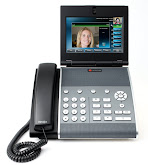
Voice over Internet Protocol (VoIP) is fast becoming the way for the world to communicate and the VoIP market jungle is full of weeds wanting to become trees.
VoIP has been around for the public market since 2002 and you can only find about a handful of stand alone VoIP service providers. Vonage who is the king of marketing still clings to its “Woo Hoo” song and their ever rising marketing costs and lower profits. Packet8, the old pioneer of Internet phone service, is chugging away while building up consumer confidence and new innovative VoIP products. We see Lingo, who likes to push their International calling plans, struggling to regain ground on the rest of field, and the new kid in the garden, SunRocket, who brings their trusty Bottom-Line pricing along for the new growth of VoIP. These and a few other companies are around for the long haul.
It is important in these early growth stages to weed out those who are trying to choke out the main growth. These are VoIP providers who are only in for the early money grabbing glory days and will die off when the heat starts to beat down on them.
If you are looking for a new VoIP service provider you need to take a few hours and weed out the jungle. You can check out the online VoIP news reports for their achievements and future plans, find and study the VoIP forums. Internet phone providers who have little or no news at all are mainly the ones that will die out. You’ll find that the strong growing VoIP companies are bringing new and improve products and services to the field everyday. Researching like this can be tough going and very time consuming.
Another option is to locate an independent VoIP, broadband or telecommunication consultant who is consistently researching and learning about the new VoIP services and products offered. These consultants are not being paid by just one provider or company to sell only their products. They are able to give you unbiased advice concerning the services you are considering. They can tell you the pros and cons of each individual provider even for those who they don’t represent.
Using an independent telecom consultant will ease the pain and time in finding that right VoIP or broadband phone provider especially in this weed choked Internet phone garden. An independent consultant will be able to inform you of what all of the top VoIP providers are doing with new services, products and future plans for the leading VoIP solutions.
















